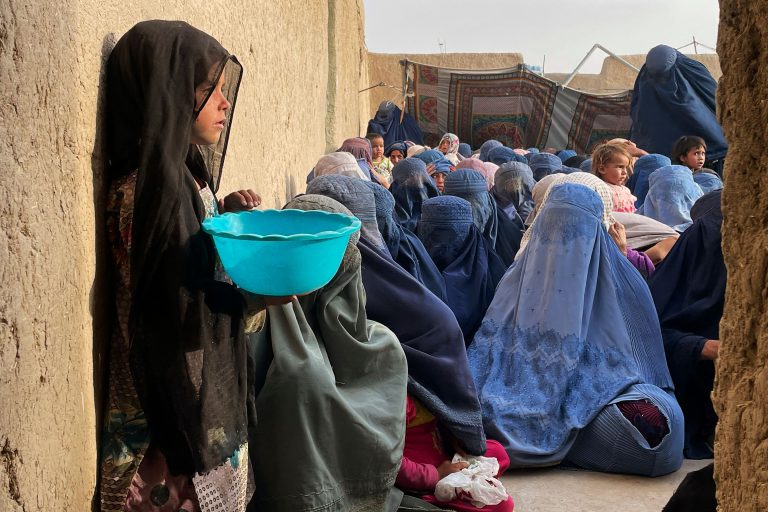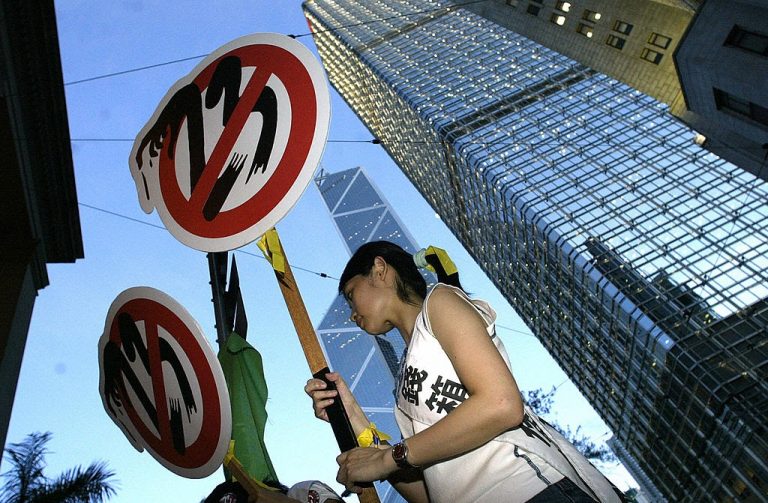On May 18, the U.S. Treasury along with several global development banks, in collaboration with other groups, announced a multi-billion dollar plan to address the worldwide food security crisis that has only deepened following Russia’s invasion of Ukraine.
At a news conference on Wednesday, U.S. Treasury Secretary Janet Yellen acknowledged the sharp increase in food and energy prices across the globe noting that global economies risk stagflation — a scenario where a sluggish economy is coupled with a high rate of inflation — and asserted that the U.S. is “best positioned” to meet this economic challenge.
“The economic outlook globally is challenging and uncertain. And higher food prices and energy prices are having stagflationary effects, namely depressing output and spending and raising inflation all around the world,” Yellen said according to the Associated Press.
In order to prevent mass starvation due to war, skyrocketing food prices and climate damage to crops the Treasury Department, along with several global development banks said they are “working swiftly to bring to bear their financing, policy engagement, [and] technical assistance” in an attempt to stave off the looming disaster.
Without providing an exact dollar figure it was announced that tens of billions will be invested to support farmers, address the fertilizer supply crisis and to develop more land for food production.
Success
You are now signed up for our newsletter
Success
Check your email to complete sign up
Among the global development banks involved is the Asian Development Bank which says it will be contributing funds to address food insecurity in Afghanistan and Sri Lanka and the African Development Bank says it has earmarked some $1.5 billion to assist 20 million African farmers, the Treasury said.
In addition, the European Bank for Reconstruction and Development, the Inter-American Development Bank, the International Fund for Agriculture Development and the World Bank will be contributing “tens of billions” in the coming months and years to address the crisis.
The plan is as a result of a meeting, convened by Yellen, in April at the International Monetary Fund and World Bank spring meetings, where she implored wealthy nations to step up and look for specific ways to combat global food insecurity in the shadow of Russia’s aggression.
Combined, Russia and Ukraine produce around a third of the world’s wheat supply and many say that soaring food and commodity prices are a direct consequence of the conflict between the two nations.
Secretary of State Antony Blinken is expected to convene meetings in New York over the next two days focusing on the global food crisis.
According to the State Department, in 2021, prior to Russia’s invasion, more than 193 million people globally experienced acute food insecurity, an increase of 40 million people from 2020. An estimated 40 million more are expected to face acute food insecurity and to be thrust into poverty by the end of 2022.
World Bank to provide additional $12 billion
In tandem with the U.S. Treasury announcement the World Bank announced it will be providing an additional $12 billion in funding to mitigate the “devastating effects” of the growing food insecurity crisis.
The additional funds brings the World Bank’s total spend on the crisis to $30 billion over the next 15 months. The injection of funds was announced just hours before a key meeting is to be held by the United Nations on global food security.
According to AFP, the World Bank said the new funding will assist in boosting food and fertilizer production, facilitate greater trade and support vulnerable households and producers.
World Bank President, David Maplass said, “Food price increases are having devastating effects on the poorest and most vulnerable. It is critical that countries make clear statements now of future output increases in response to Russia’s invasion of Ukraine.”
Previously, the World Bank had promised $18.7 billion in new funding for projects created to address “food and nutrition security issues” in Africa, the Middle East, Eastern Europe and Central and South Asia.
Malpass said, “Countries should make concerted efforts to increase the supply of energy and fertilizer, help farmers increase plantings and crop yields, and remove policies that block exports and imports, divert food to biofuel, or encourage unnecessary storage.”
Last weekend India banned exports of wheat which sent prices for grain soaring and the Biden Administration has recently announced it will be increasing the amount of ethanol, a corn based additive, to U.S. gasoline in an attempt to provide relief for consumers who have seen the cost of gasoline soar in recent months.
The Treasury Department was quick to applaud the World Bank’s commitment saying, “The Russian war against Ukraine is the latest global shock that is exacerbating the sharp increase in both acute and chronic food insecurity in recent years driven by conflict, climate change and economic downturns, such as those associated with the COVID-19 pandemic.”

















